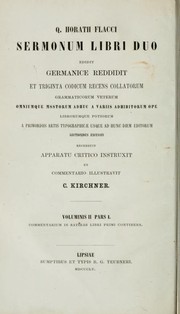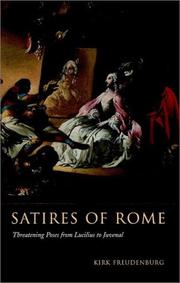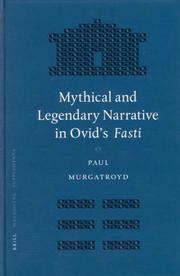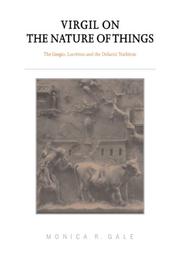
|
Satirae
|
Horace |
The Roman philosopher and dramatic critic Quintus Horatius Flaccus (65-3 B.C.), known in English as Horace, was also the most famous lyric poet of his age. Written in the troubled decade ending with … |
OL15249113W |

|
A companion to Ovid
|
Peter E. Knox |
This companion to Ovid features more than 30 newly commissioned essays dealing with such topics as production, genre, and style. It presents interpretive essays on key poems and collections of poems,… |
OL16929091W |

|
Imperial projections
|
Donald T. McGuire,Margaret Malamud,Sandra R. Joshel |
The creators of popular culture have often appropriated elements of Roman history and society. This text looks at how ancient Rome has been depicted and what the portrayals tell us about contemporary… |
OL20905105W |

|
Satires of Rome
|
Kirk Freudenburg |
This new survey of Roman satire locates its most salient possibilities and effects at the center of every Roman reader's cultural and political self-understanding. This book describes the genre's num… |
OL4280868W |

|
Virgil and the Augustan reception
|
Richard F. Thomas |
This book is an examination of the ideological reception of Virgil at specific moments in the last two millennia. The author focuses on the emperor Augustus in the poetry of Virgil, detects in the po… |
OL461956W |

|
Mythical and Legendary Narrative in Ovid's Fasti (Mnemosyne
|
Paul Murgatroyd |
This book analyses the mythical and legendary narratives in Ovid's Fasti as narrative and concentrates on the neglected literary aspects of these stories. It combines traditional tools of literary cr… |
OL5737681W |

|
King of the Wood
|
Julia T. Dyson |
"In King of the Wood, Julia T. Dyson offers a radical reinterpretation of Virgil's Aeneid. She persuasively argues that Aeneas' final sacrifice of Turnus, which has perpetually troubled readers, is d… |
OL6210389W |

|
Virgil on the Nature of Things
|
Monica R. Gale |
The Georgics has for many years been a source of fierce controversy among scholars of Latin literature. Is the work optimistic or pessimistic, pro- or anti-Augustan? Should we read it as a eulogy or … |
OL8306345W |







